How is citizens’ privacy affected by surveillance systems in urban mobility infrastructures?
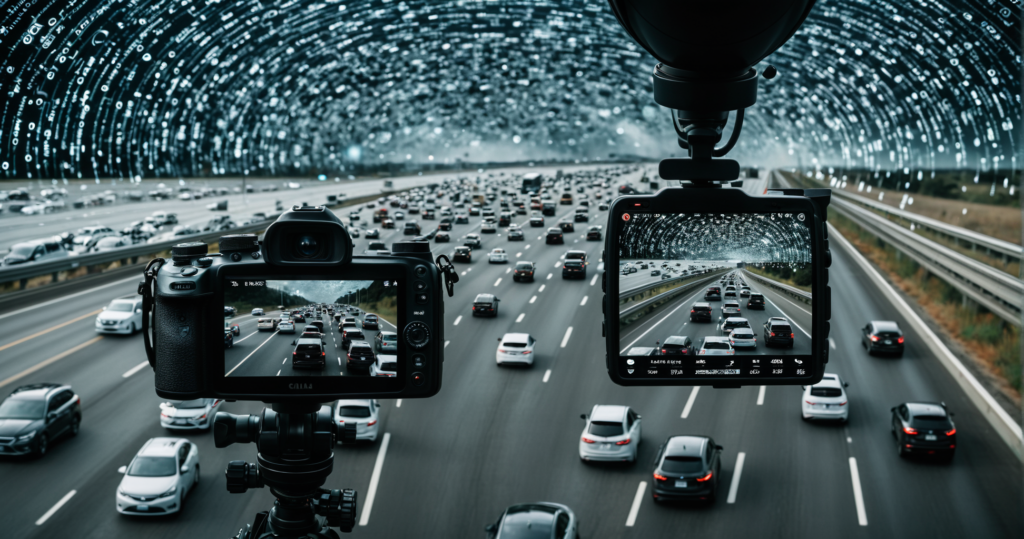
Credits
Ameya Thopte
Manideep Mamidala
Ragini Chakrawarti
Rishi Srinivasan
Sakshi Adwani
Varalika Sahu
Setting: Beijing-Mongolia Expressway, 2024. It’s a warm afternoon, and the clear road promises an easy drive.
Characters:
1. Astrid: Skeptical, Questions the effects of constant surveillance on freedom and identity
2. Chen: Optimistic, argues surveillance is crucial for maintaining order
3. Olivia: Intellectual, see surveillance has got a practical tool as well as a societal control mechanism
4. Officer Liu: Helping Officer at the control center.
5. Vendor : The Vendor selling on the expressway who was present when the 2010 jam happened.
Act 1: The Road Ahead
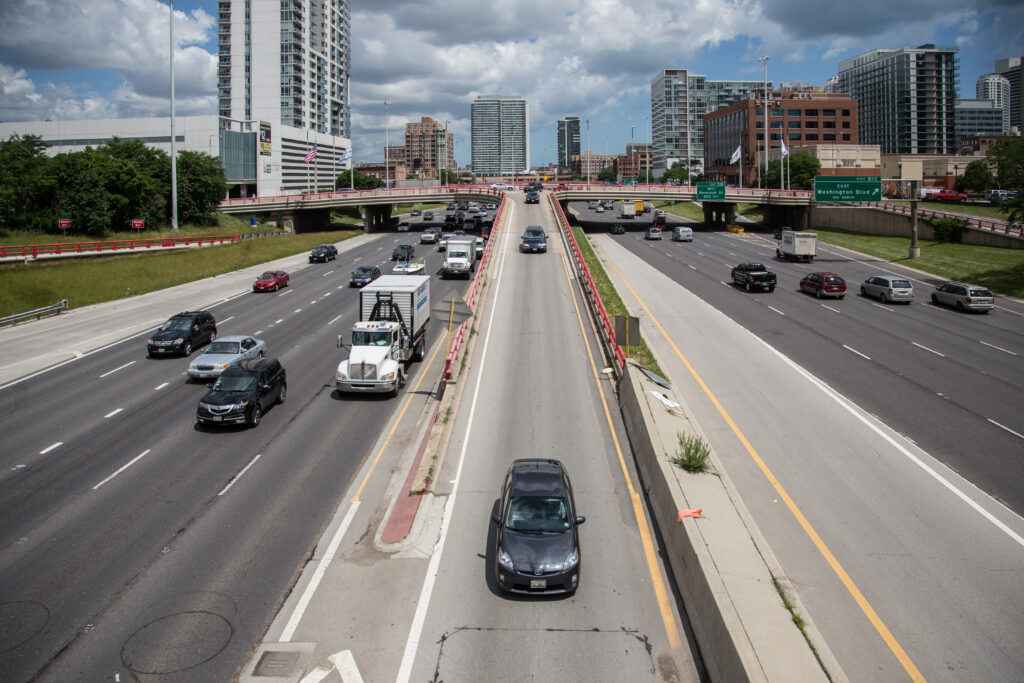
Astrid, Chen, and Olivia are cruising down the Beijing-Mongolia Expressway. The car hums steadily along, and they’re enjoying the simplicity of the trip—good friends, good music, and a wide-open road
Astrid : (casually munching on chips) Isn’t it weird how much we depend on all this tech around us? It’s like we can’t even go for a drive without it watching over us.
Olivia : You think that’s bad? “Every move we make is being logged somewhere” [1]. I mean, look at these cameras. There’s nowhere we can go where they’re not recording us. (paraphrased)
Chen : (shrugging) I don’t mind it. It’s kind of comforting. You know, “knowing someone’s always got their eye on things” [2]. Makes the world feel a bit safer, you know?
Astrid : Safe? Sure. But doesn’t it feel a little claustrophobic? Like, “What happens when there’s no escape from it?” [3]
Olivia : Yeah, and it’s like there’s no end to it. “The world’s eyes are always on us now” [4], like we’re just pieces in some giant puzzle. (paraphrased).
They fall into a contemplative silence as they continue driving, each thinking about the strange reality of living in such an interconnected and monitored world. It’s as if they’re moving through a labyrinth of invisible webs, all holding them in place.
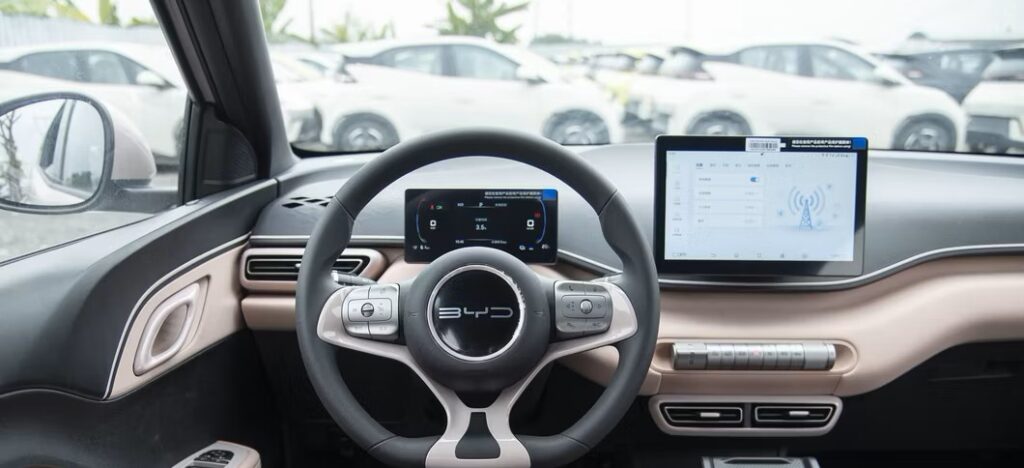
https://jalopnik.com/byd-atto-3-first-drive-chinese-electric-crossover-1849766606
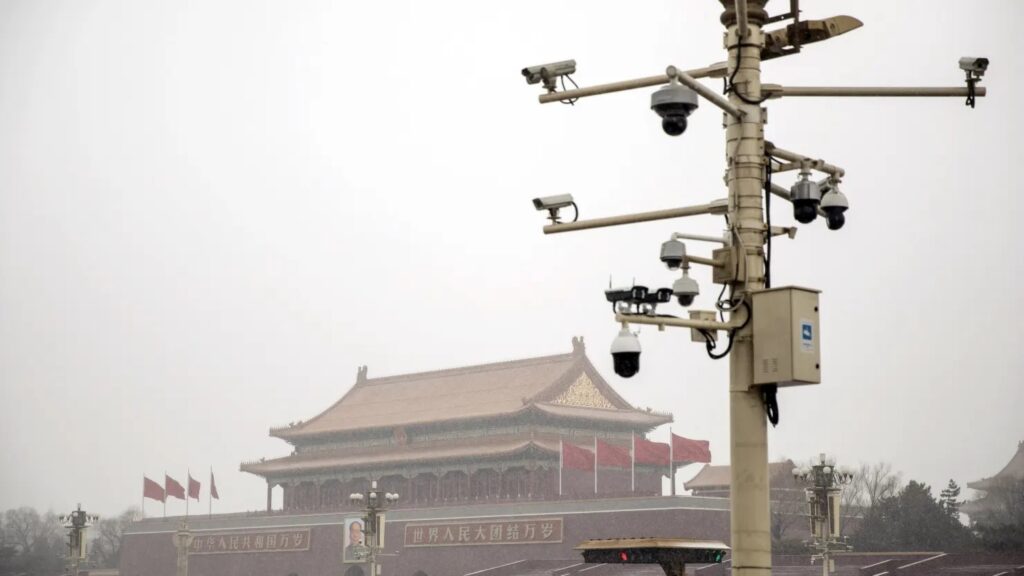
https://www.cnbc.com/2019/10/08/china-is-exporting-surveillance-tech-like-facial-recognition-globally.html
Act 2: Surveillance Comforts and Annoyances
The car rolls along, and Olivia, Chen, and Astrid drift into a philosophical conversation about privacy, surveillance, and freedom.
Astrid : Sometimes, “I wonder if we’re just here to entertain the cameras. Like, we’re performing some act, and there’s always an audience” [5]. But it’s not people watching, it’s… I don’t know, something else.
Chen : You’re exaggerating. It’s not like we’re on stage. It’s just security, like a “net that keeps us safe” [6].
Olivia : (leaning forward, looking at the cameras) Or maybe it’s more like a glass cage. “We’re free to move, but only as long as we follow certain paths” [7]. (paraphrased).
Astrid : Exactly! Like, we’re part of some machine, keeping it running without even realizing it. And “we let it happen because it’s convenient” [8], right?
Chen : (rolling his eyes) You two are so paranoid! Isn’t it enough that things work smoothly? Why does it matter if they’re watching?
Olivia : Maybe because it feels like we’re all ‘glassy,’ transparent, with no way to cover up. “The line between public and private has just… disappeared” [9].
They go quiet, pondering the complexity of modern life where every choice seems shaped by a constant, invisible watcher.
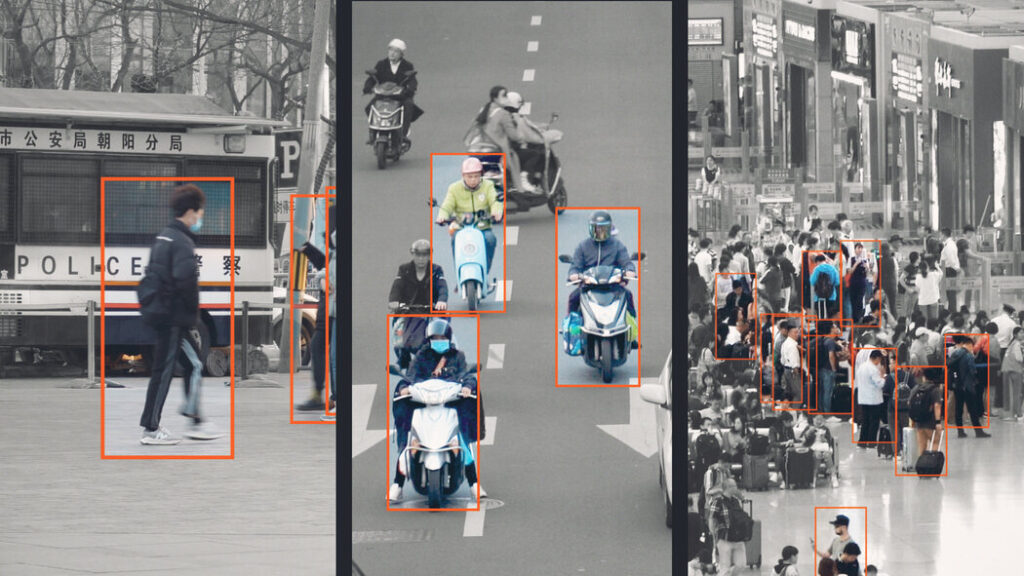
https://static01.nyt.com/images/2022/06/21/world/asia/Chinafilesurveillance-CoverArt-01/Chinafilesurveillance-CoverArt-01-
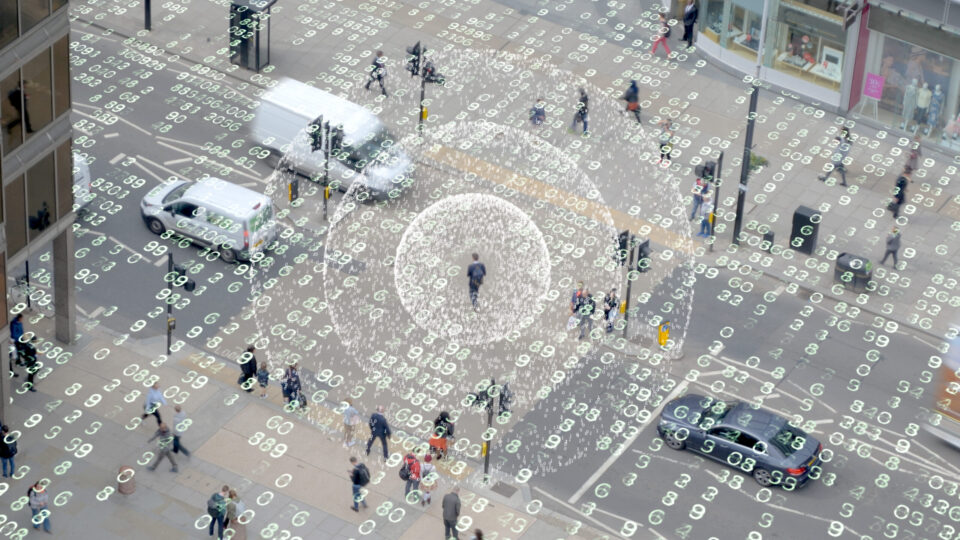
https://epic.org/the-rise-of-chinese-surveillance-technology-in-africa-2/
Act 3: Pause and Reflection
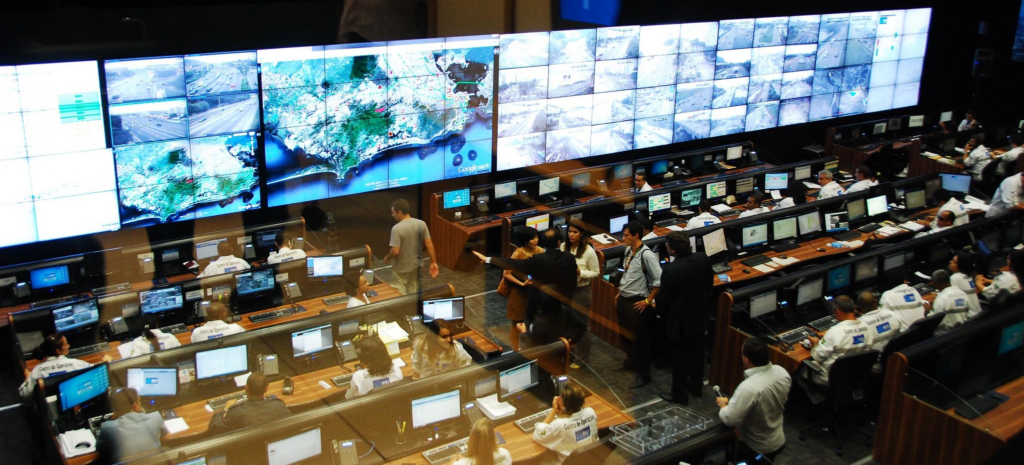
https://use.metropolis.org/case-studies/rio-operations-center
As the road stretches on, they notice traffic slowing. Soon, their car comes to a full stop. Around them, drivers in other cars seem equally puzzled.
Astrid : (glancing around) I thought “With all this technology, traffic jams like this would be a thing of the past.” [10]
Olivia : Guess the tech isn’t as foolproof as they’d like us to believe. “Even with all the data and control, stuff can still go wrong” [11]. (paraphrased)
Chen : (checking his phone, frustrated) And of course, no signal. Isn’t that ironic? “All these devices and connections, and we’re still left in the dark” [12].
Outside, the Vendor moves through the stalled cars, offering snacks and water.
Vendor : Fruit, water, snacks! Get them now! You never know how long you’ll be here!
Olivia rolls down her window, buying some snacks from the vendor.
Olivia : (to the vendor) Can we get two chip packs, please?
Vendor : It’s 100 Yuan.
Olivia gives him the money and while taking the chips from the vendor, continues their conversation when they get views of the vendor from his personal experience.
Olivia : (to the group) Maybe “if we didn’t rely so much on all this tech, we’d be better off” [13]. Imagine if people just figured things out on their own without a system watching over them. (paraphrased)
Vendor : I experienced the 2010 jam. It was a 12-day-long jam which covered almost 100km. But back then, they didn’t have cameras on every lamppost, or cars reporting our location to the city every second. Back then, transparency was just a word, not a reality we lived in. But here we are—what’s it done for us now?
Astrid : Or maybe we’d just be left in chaos. I mean, it’s a bit comforting, knowing “there’s a structure, something that keeps things predictable” [14]
Chen : Exactly. I don’t see the problem with being seen. It makes things easier. If you’re not doing anything wrong, what’s the harm?
Astrid : But it’s not about doing something wrong, Chen. It’s about “who controls us when we can’t even see them” [15]. (paraphrased)
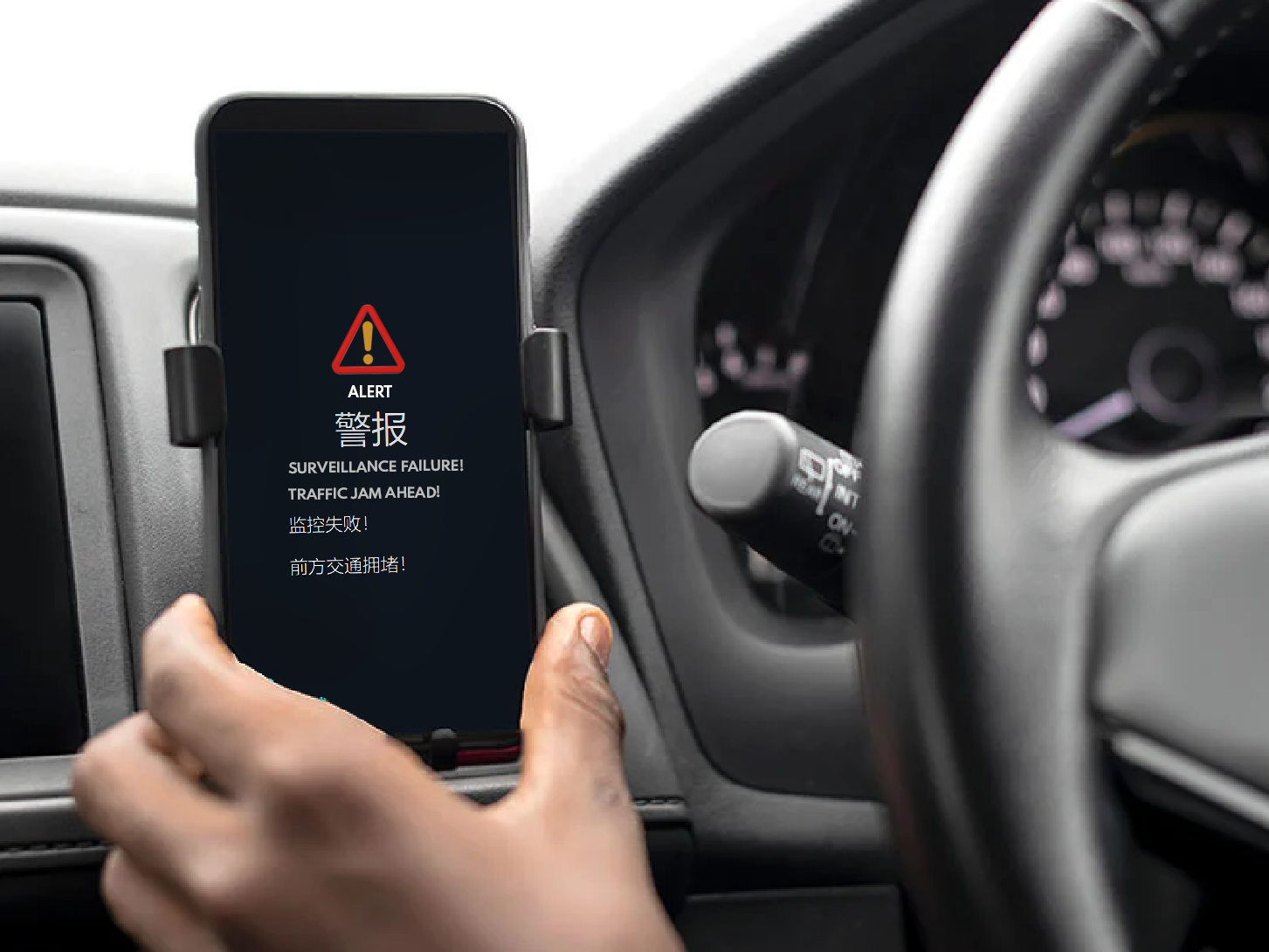
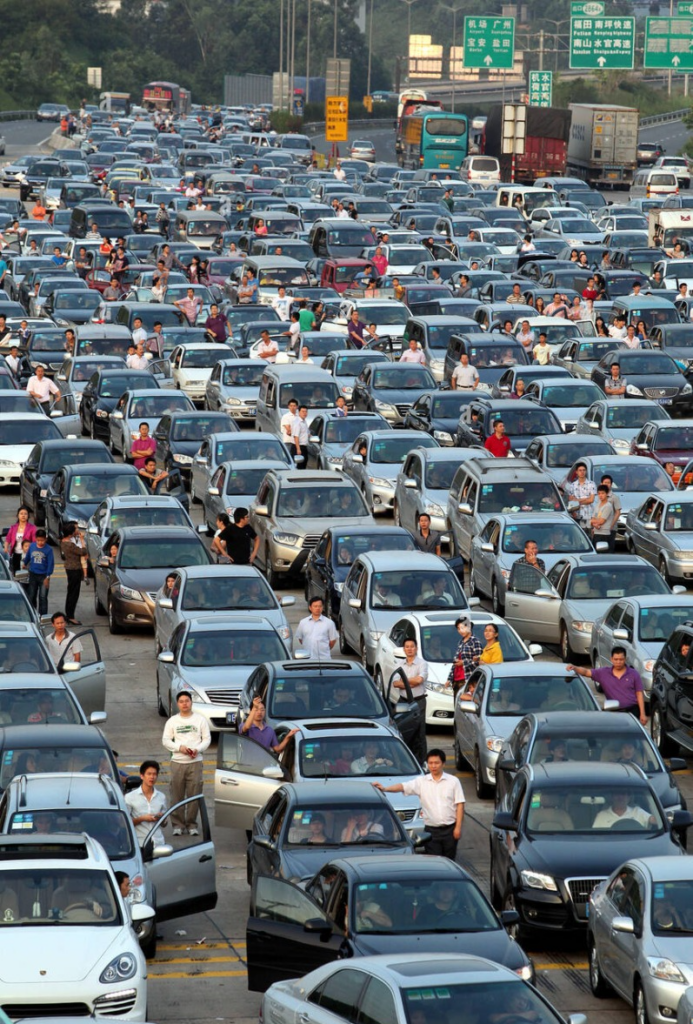
https://www.alamy.com/chinese-holidaymakers-rest-next-to-their-cars-as-they-are-waiting-in-a-long-queue-in-a-traffic-jam-on-an-expressway-during-the-mid-autumn-festival-and-image263853161.html
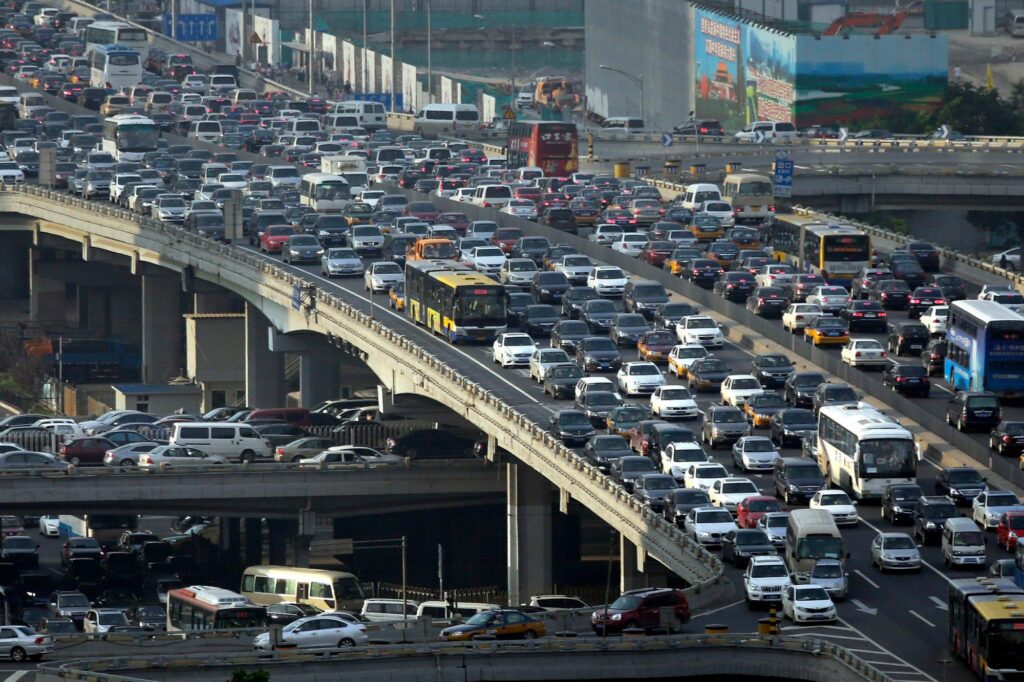
https://www.alamy.com/chinese-holidaymakers-rest-next-to-their-cars-as-they-are-waiting-in-a-long-queue-in-a-traffic-jam-on-an-expressway-during-the-mid-autumn-festival-and-image263853161.html
Act 4: Under the Unwatched Sky
Evening descends, and some of the stalled drivers step out of their cars to stretch. People start mingling and sharing snacks. With no visible surveillance, there’s a strange sense of freedom in the air. It’s as if, for the first time, they are truly unobserved.
Chen : This feels kind of nice, doesn’t it? Like we’re on our own out here, “away from all that… control” [16].
Olivia : (leaning against the car, looking up at the sky) It’s funny. “Without the cameras watching, it feels like we’re just people again, not data points” [17]. (paraphrased)
Astrid : (thoughtfully) Maybe it’s because “surveillance changes how we act” [18], even when we don’t notice it. With all those eyes gone, we’re free to just… be.
Officer Liu : (walking through the crowd with a megaphone) Attention, everyone! Please stay in your vehicles. We’re working on restoring the surveillance system to get things moving again.
Olivia : (shaking her head) See? The second they get the cameras working, they think they can restore ‘order.’ It’s like they can’t imagine people just being able to handle things themselves.
Astrid : That’s because, to them, “control is order” [19]. It’s how they keep things running.
Chen : (smiling at the gathering) Well, I kind of like this break from all that order. It’s like we’re back to basics.
Officer Liu : (listening nearby, interjecting) Don’t be fooled. Without order, this peace won’t last. “Safety requires surveillance and control” [20]. That’s the only way a city can work.
Astrid : But maybe people can find their balance. Not everything has to be looked down on to keep us safe.
Officer Liu : Order without control? Look around. This is the exception, not the rule. When we get those cameras back online, this freedom you feel will fade like it was never here.
Astrid, Olivia, and Chen glance at each other, thoughtful and uncertain, as the headlights flicker on in the dimming light. The road ahead is still blocked, and the night feels as open as it is unknown.
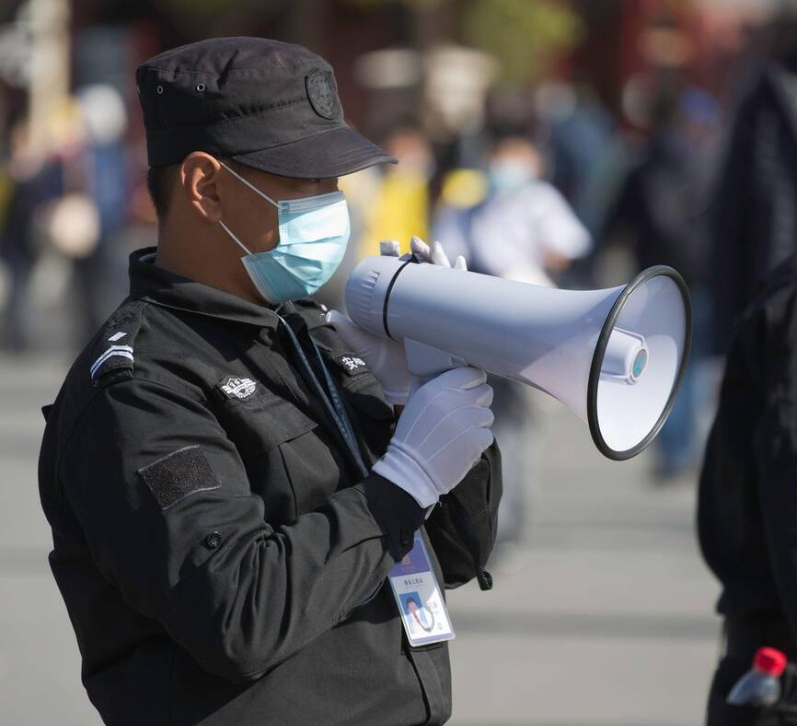
https://c8.alamy.com/comp/2D7Y3TM/securtiy-at-the-fobbiden-city-beijing-china-2D7Y3TM.jpg
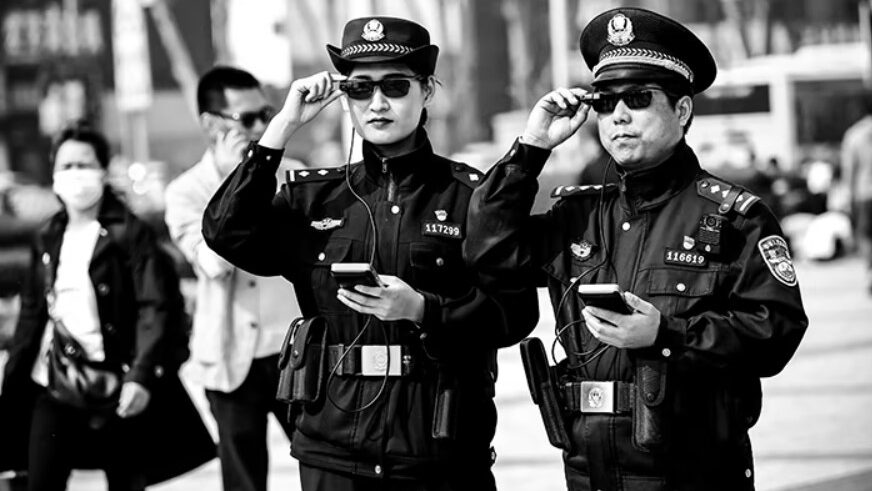
https://www.elconfidencial.com/multimedia/album/ tecnologia/2018-05-31/feria-tecnologia-policial-china_1571382#0
Curtain !!
Quotes
1. Han, Byung-Chul. The Transparency Society :
2. Learning Cities
3. Deleuze, Gilles. Postscript on the Societies of Control
4. Han, Byung-Chul. The Transparency Society
5. Bratton, Benjamin. Revenge of the Real
6. Learning Cities
7. Han, Byung-Chul. The Transparency Society
8. Deleuze, Gilles. “Postscript on the Societies of Control
9. Han, Byung-Chul. The Transparency Society
10. Learning Cities
11. Han, Byung-Chul. The Transparency Society
12. Learning Cities
13. Han, Byung-Chul. The Transparency Society
14. Bratton, Benjamin. Revenge of the Real
15. Bratton, Benjamin. The Stack: On Software and Sovereignty
16. Learning Cities
17. Han, Byung-Chul. The Transparency Society
18. Deleuze, Gilles. Postscript on the Societies of Control
19. Deleuze, Gilles. Postscript on the Societies of Control
20. Learning Cities
Bibliography
1. Han, Byung-Chula. The Transparency Society. Stanford University Press, 2015.
2. Bratton, Benjamin. Revenge of the Real. Verso Books, 2021.
3. Deleuze, Gilles. “Postscript on the Societies of Control.” October, MIT Press, 1992.
4. Bratton, Benjamin. The Stack: On Software and Sovereignty. MIT Press, 2016.
5. Learning Cities

